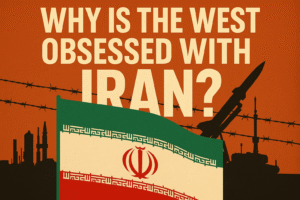Geopolitical Briefing: Egypt
19 May 2025
- Egypt and China concluded their inaugural joint air force exercise, “Eagles of Civilization 2025,” marking a significant shift in Cairo’s military alliances.
- The Suez Canal Authority announced a 15% discount on transit fees to attract shipping traffic back to the canal amid declining revenues.
- Humanitarian aid destined for Gaza continues to accumulate at Egypt’s Rafah border crossing, as Israel maintains a blockade that has led to severe shortages within the enclave.
- Egypt’s active participation in recent BRICS meetings underscores its intent to diversify economic alliances beyond traditional Western partners.
- Public demonstrations in Egypt reflect growing domestic discontent over the government’s perceived inaction regarding the Gaza crisis.(Reuters)
Egypt and China concluded their inaugural joint air force exercise, “Eagles of Civilization 2025,” on May 4. The 18-day drills, held at Egypt’s Wadi Abu Rish Air Base, involved advanced fighter jets, aerial refueling tankers, and helicopter gunships from both nations. This unprecedented collaboration marks a notable pivot from Egypt’s traditional military alignment with the United States, suggesting a strategic diversification of its defense partnerships. By engaging with China, Egypt appears to be seeking greater autonomy in its security affairs, potentially reducing reliance on Western military support and enhancing its regional influence.
The Suez Canal, a critical artery for global trade and a significant source of revenue for Egypt, reported a sharp decline in income, generating $3.991 billion in 2024 compared to $10.25 billion in 2023. This downturn is attributed to regional instability, including Houthi attacks on Red Sea shipping lanes, which have diverted maritime traffic away from the canal. In response, the Suez Canal Authority announced a 15% discount on transit fees for large container ships to attract shipping traffic back to the canal. The economic strain underscores Egypt’s vulnerability to external geopolitical disruptions and highlights the urgency for Cairo to secure alternative economic partnerships and reinforce the canal’s strategic importance.(Reuters)
Humanitarian aid destined for Gaza continues to accumulate at Egypt’s Rafah border crossing, as Israel maintains a blockade that has led to severe shortages within the enclave. International organizations report that at least 57 Palestinians have died from starvation, with the situation deteriorating rapidly. Egypt faces mounting pressure to facilitate the delivery of aid, balancing its diplomatic relations with Israel and the United States against domestic and international calls for humanitarian action. The impasse at Rafah reflects the complexities of Egypt’s regional role and the challenges in aligning its foreign policy with humanitarian imperatives.
Egypt’s active participation in recent BRICS meetings, despite the bloc’s inability to issue a joint communique, signals Cairo’s intent to diversify its economic alliances beyond traditional Western partners. Engagement with BRICS nations offers Egypt opportunities to attract investment and collaborate on initiatives that may bolster its economic resilience. This strategic outreach aligns with Egypt’s broader objective to assert greater independence in its economic policies and reduce susceptibility to Western economic pressures.
Domestically, Egypt has witnessed public demonstrations expressing solidarity with Palestinians in Gaza and criticizing the government’s perceived inaction. Protesters have gathered in various locations, including outside the Egyptian embassy in Pretoria, urging the government to open the Rafah crossing for aid delivery. These demonstrations reflect a growing disconnect between the government’s foreign policy decisions and public sentiment, potentially challenging internal stability and prompting a reevaluation of Egypt’s stance on the Gaza crisis.

